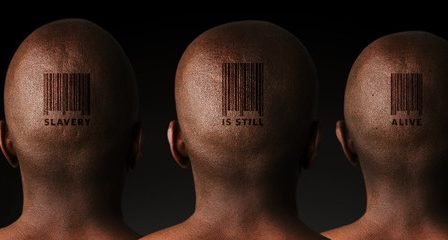This article was originally published by George Ford Smith at The Mises Institute.
“America, above all countries, was born in an explicitly libertarian revolution, a revolution against empire; against taxation, trade monopoly, and regulation; and against militarism and executive power.”—Murray Rothbard, For a New Liberty: The Libertarian Manifesto
What happened? How did we, in 2025, get so far from the dream of establishing a libertarian society? Answer: Certain elites didn’t want one. They wanted protection from the great multitude. They wanted power concentrated in a few people of their choosing, and that meant establishing a central coercive state. But directing the country away from its libertarian founding required slick political maneuvering.
Most Americans born before 1980 know that something began on July 4, 1776, that didn’t conclude until years later. On that day in Philadelphia, the Continental Congress declared its member colonies to be “free and independent states,” and as such they would conduct themselves as states “may of right do.” This put the signers of this declaration in charge of their own fate, provided they win the war with Great Britain that began over a year earlier. And, should king or Parliament doubt their sincerity, by signing, they mutually pledged to each other their lives, fortunes, and sacred honor.
Usually, war is an elite enrichment scheme, and for some, the Revolution was indeed a profitable undertaking, as was true for Robert Morris, the Revolution’s financier. But for others, such as Thomas Nelson, Jr., the war destroyed his personal fortune—he sank “from affluence, almost to absolute poverty,” as a friend put it in Nelson’s eulogy. He lost it all fighting for the radical ideals of the Declaration. Although Morris had no such idealistic fervor during the war, after it was over, his failed real estate speculations landed him in debtor’s prison for three years.
Winning the War without Formal Confederation
Wars are normally fought between governments—more precisely, governments declare wars, and the people fight them. Americans’ formal government was under construction until March 1, 1781, when the states unanimously ratified the Articles of Confederation and Perpetual Union. For five years, they fought with only the Continental Congress serving as an undocumented central advisory. This was suspiciously close to a condition of anarchy.
As we know, the quasi-anarchist Americans fared well in their struggle for independence. After Burgoyne surrendered to Gates at Saratoga in October 1777—marking a major victory for the Americans—France entered into a commercial and military alliance with the US in 1778 that eventually proved decisive at Yorktown in 1781, where Cornwallis surrendered to Washington to end the war.
The Battles of Saratoga were considered a turning point in the war. But how did it get that far? The Americans had no well-trained, standing army when it started. They were farmers and tradesmen with muskets facing what was regarded as the world’s premiere fighting force. George Washington accepted command of the ragtag American “army” in June 1775 and six months later Thomas Paine gave them bold words about why they should declare independence, followed by Jefferson’s eloquent libertarianism of the Declaration. But does this explain the Americans’ eventual victory? Was it a matter of home turf advantage combined with discipline, ideological purpose, and the enemy’s lack of enthusiasm? All of it under guidance of an informal, argumentative committee called a Congress and funded by paper that created economic havoc?
That wouldn’t be far from the truth. But while Paine was writing an inspirational essay to keep Washington’s demoralized troops in camp, the conservatives in Congress were making plans for an American central state if they were victorious. As a corollary to his call for independence in June, 1776 Richard Henry Lee included a resolution for confederation which resulted in arch-conservative John Dickinson chairing a committee of 13 to provide one. Based on a plan circulated by Benjamin Franklin the previous year, the draft promoted the idea of a strong central government wherein the powers left to the states would be negligible, with Congress having the power to create any and all laws necessary for the “general welfare.”
As Rothbard explains, Dickinson’s conservative call for subordination of the existing states to a central Congress took a hit with the arrival of Dr. Thomas Burke of North Carolina in the spring of 1777. Burke secured an amendment that became Article Two of the Articles, which stated:
Each state retains its sovereignty, freedom and independence, and every power, jurisdiction, and right, which is not by this confederation expressly delegated to the United States, in Congress assembled.
Sovereignty had been shifted from the central government to the states. Rothbard concludes,
While the radicals had succeeded in pulling much of the centralist teeth, the Articles were still a momentous step from the loose but effective unity of the original Continental Congress to the creation of a powerful new central government. To that extent, they were an important victory for conservatism and centralization, and proved to be a halfway house on the road to the Constitution.
The Rest is History
Following the war, debt notices and collectors showed up at the doors of backcountry residents in Massachusetts, leading to what became known as Shays’s Rebellion. As historian Leonard L. Richards has meticulously documented, the standard story of Shays’s Rebellion as an uprising of indebted farmers in Western Massachusetts who refused to pay their taxes simply did not wash. Based on his archival research, the insurgency was in fact a protest of western farmers—many of them veterans of the Revolution and leaders in their towns—against the Massachusetts government for its attempt to enrich the few at the expense of the backcountry.
Shays’s Rebellion was propagandized to drag George Washington from retirement to Chair the Constitutional Convention on the grounds that the rebellion reflected a grave weakness in government. Called for the purpose of revising the Articles, the Convention instead conducted secret proceedings and developed a new document that has centralized control over the states and the American people.
Read the full article here












